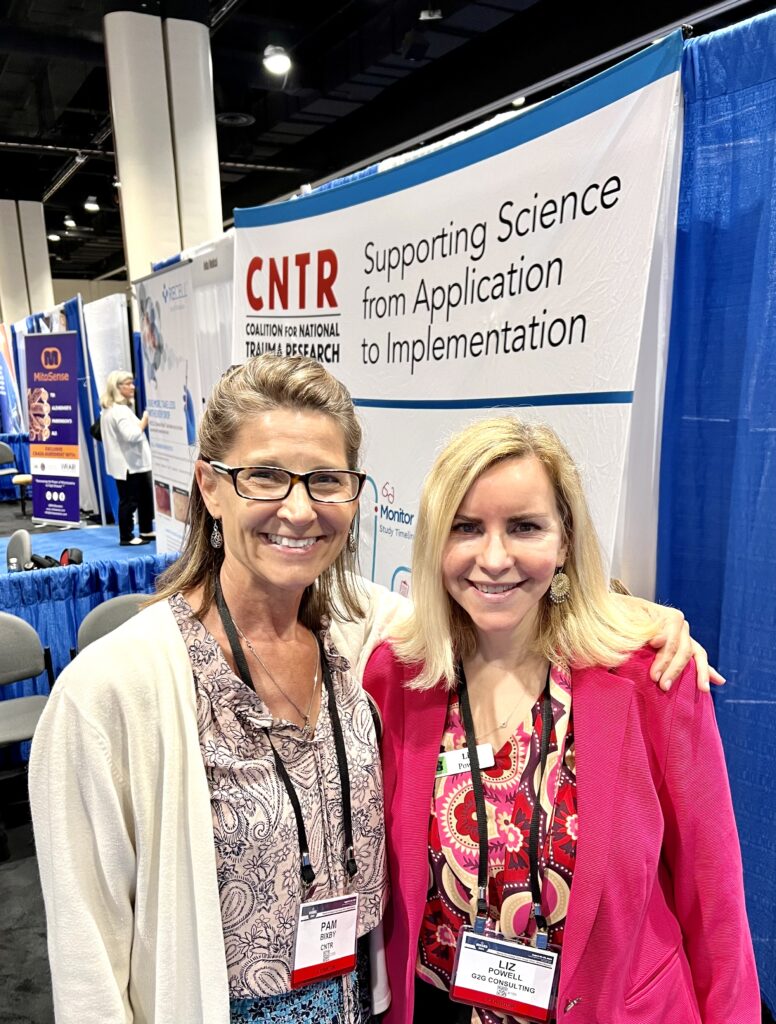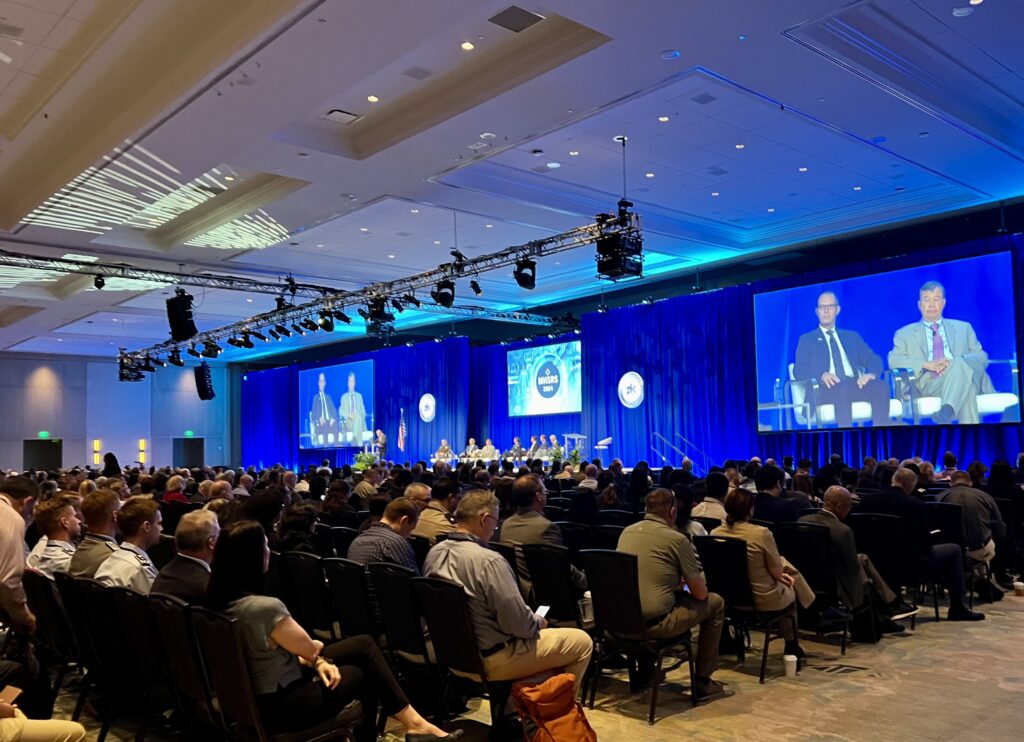MHSRS 2024 DAILY DIGEST – DAY 1
The 2024 Military Health System Research Symposium (MHSRS) kicked off on August 26th with record participation – more than 4,300 attendees, including Defense Department leadership, program managers, research scientists and investigators, industry, academia, and international partners. Over five hundred breakout sessions span 72 scientific topic areas, 1,470 poster presentations, and more than 100 vendor exhibit booths, including G2G’s. MHSRS is the nation’s premier scientific meeting focused on the unique military medical needs of the men and women who sacrifice life, limb, and safety to protect our country. The theme of this year’s MHSRS is “Meeting the Changing Threat through Military Medical Research.”
Honorable Lester Martinez Lopez, MD, MPH, Assistant Secretary for Defense for Health Affairs gave opening remarks at the morning plenary. He discussed three high level priorities.
- Anticipating and planning for trauma care for the next conflict which will have increased weapon lethality, face more complicated air evacuation, and require complex care for longer periods of time. He emphasized we must focus on meeting the need where they are, no matter where they are.
- Brain health is a priority research area with TBI continuing to be of top concern. Assistant Secretary Martinez Lopez noted that the Department will keep advancing innovation because we owe it to our service members and their families to use every available resource to research and treat brain health.
- Mental health is health and the Department aims to improve how to address it for all service members. He talked about how we as a nation are reducing stigma, but not enough yet and too many are suffering in silence. He said we need to identify who is at risk and what may help them, but also address public health crises such as housing that lead to mental health issues. On the research side, MHS is looking at technologies and developing tools to navigate different techniques for early detection, intervention and treatment.
The plenary session also included moving remarks by COL Gregory Gadson (ret) who was injured in the battlefield and encompassed the value of medical innovation and dedicated medics, doctors and nurses in keeping him and all service members alive and well. He continued to serve even after losing both lower limbs and now is a successful entrepreneur and role model for millions throughout the services.
Yet another new feature of the plenary session was a focus on women’s health. For the first time ever, there was a women’s health presentation during the plenary session. Carolyn M. Mazure, PhD, who is the White House Initiative on Women’s Health Research Chair, shared updates on progress made over the decades in including women in clinical trials and new innovations for conditions that solely, disproportionately and/or differently impact the health of women. She also covered areas for improvement, especially among the growing number of women in DoD and the VA. She explained the White House Initiative led by the President and First Lady and the work to translate science into practice to improve women’s health within and outside of the military. The Executive Order signed on March 18th is leading to progress in using existing dollars and programs to better integrate sex differences into research throughout the Department of Defense, the Department of Veterans Affairs, the National Science Foundation (NSF), the Department of Health and Human Services, Office of Research on Women’s Health, and Advanced Research Projects Agency for Health (ARPA-H) among others.
Several sessions on women’s health were also included during breakout sessions where researchers shared study results on a range of topics that included infertility knowledge among service members as well as infertility risks, STDs, and mental health. For example, one study found that 70% of women in the military said they felt unwelcome in the military, which directly impacted their mental health.
Other breakout sessions covered cellular therapies, AI, TBI, big data and machine learning, combat casualty care, musculoskeletal injuries, and lessons learned from the Ukraine conflict. The day ended with the opening of the exhibit hall, holding a record number of exhibitors, including military, universities, innovators, and research institutes and the annual Assistant Secretary of Defense Reception with great networking for all! G2G has a booth (#319) if you are attending this week please stop by or reach out so we can connect.










